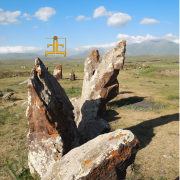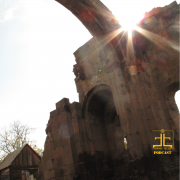Alternatives
Armodoxy for Today: Alternatives
Yesterday, in our message about wisdom, we spoke of processing knowledge. I gave two examples of how Jesus was confronted on issues of knowledge and instead opted to answer with wisdom. Looking deeper into the two examples, we find wisdom presents alternatives that are overlooked when only knowledge is applied to the decision-making process.
In John chapter 8, a woman is caught in the act of adultery and the evangelist tells us that they brought her to Jesus “To test him.” (vs 6) The law given by Moses to the Jews, commands that such a person should be stoned to death. The “test,” then, was to see if Jesus would say yes or no to stoning. If he refuted it and gave her a “pass” they would hold him in contempt of the law. If he agreed to stoning, they’d question the sincerity of his message of love and forgiveness.
Jesus agrees to the stoning on the condition that whoever is without sin throw the first stone! One by one her accusers backed away until she was left alone. Jesus asks her, “Where are those accusers of yours? Has no one condemned you?” Neither does he condemn her, and says, “Go, and sin no more.”
It is important to mention that of all the people huddled around the woman, only Jesus, being sinless, was qualified to throw a stone, but he doesn’t. Given two options based on the knowledge of the law, Jesus, in his wisdom, overrode the law by presenting an alternate solution.
The second incident was also a test with a seemingly binary solution. We read in Matthew 22:12-21, they ask if it is “Lawful to pay taxes to Caesar or not?” (vs 17) The Jews were subjects in the Roman Empire and the question of paying taxes might explain where Jesus’ loyalties lied. Saying yes to taxes would make him a friend of the Roman Empire, saying no would set him up a troublemaker among the people. Again, having the knowledge as background, Jesus gives an alternative within the parameters of the circumstances. Asking for a coin, he asks, whose face is on the coin? The answer, “Ceasar’s.” Accordingly, he directs them, “Render to Caesar the things that are Caesar’s, and to God the things that are God’s.”
Some people acquire wisdom based on life experiences and inner conviction. But Jesus is wisdom, says the theologian and saint of the Church, Nersess Shnorhali.
Throughout the Gospel Jesus is put to the “test” to select one or another way? “Should we forgive a person who sins against us seven times?” he answers, “Not seven times, but seventy times seven.” (Matthew 18) “Send the people home so they can eat,” the disciples warn Jesus and instead he feeds the crowd of 20,000. (Matthew 16) They bring a quadriplegic for him to heal, and he says, “Your sins are forgiven.” (Matthew 9) And the list goes on.
Jesus, the “wisdom of the Father,” presents an alternative to the yes/no answers we assume are the only options. Looking at a world plagued by war, hatred, greed, and pollution of body, nature and soul, often we reduce issues to factors based on knowledge and miss the options granted by wisdom.
St. Nersess Shnorhali offers this prayer request which we read today, Jesus, Wisdom of the Father, grant me your wisdom that I may speak, think, and do that which is good in your sight. Save me from evil thoughts, words and deeds. Amen.

 2023 Fr. Vazken
2023 Fr. Vazken
 2025 Epostle
2025 Epostle






Leave a Reply
Want to join the discussion?Feel free to contribute!